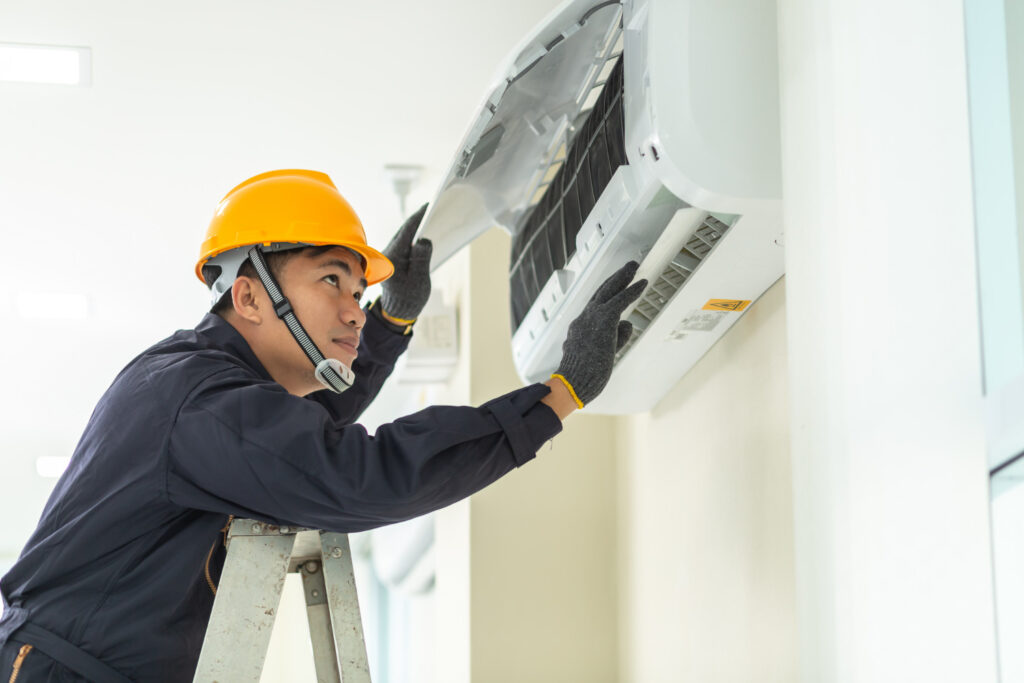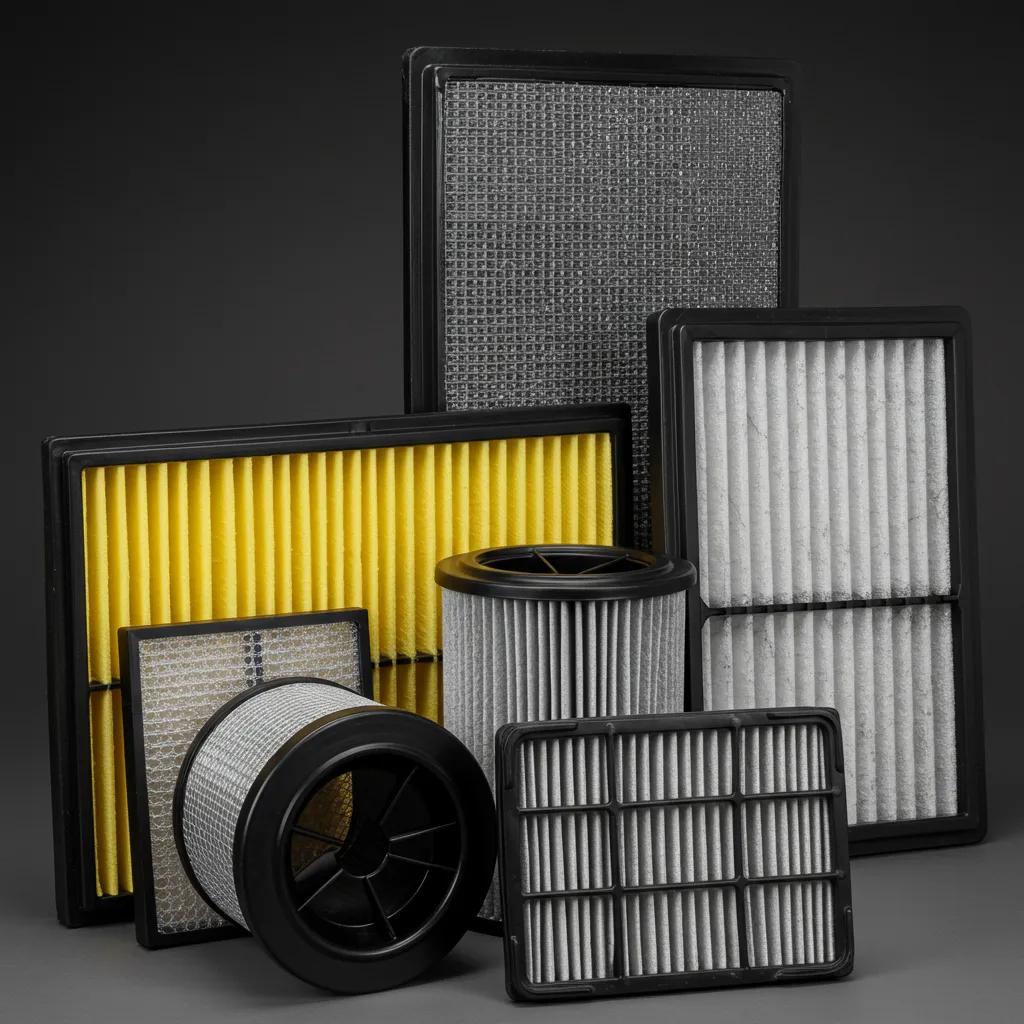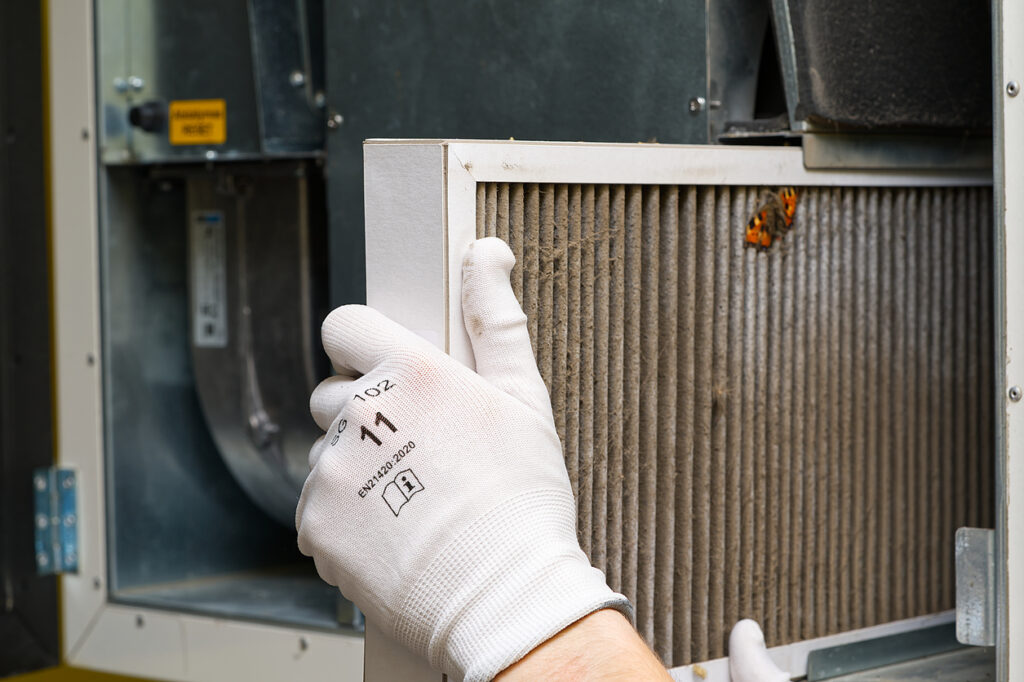
Share Your Experience: Review Alpine Heating & Sheetmetal LLC
When you think about cleaning your air filters, it might seem like a smart, money-saving move. But that idea can actually harm your indoor air quality, put a strain on your HVAC system, and shorten its lifespan. Recent industry data shows that disposable air filters lose up to half their effectiveness when washed, leading to higher energy bills and increased repair risks. In this guide, we’ll cover why HVAC air filters are so important, debunk the myths about cleaning them, explain the advantages of regular replacement, offer practical tips on how often to change them, help you choose the right filter, highlight the value of professional service, and answer your common questions about dirty air filters. By understanding all these points, homeowners and business owners in Orofino, Clearwater, Nez Perce, and Lewis counties can make smart choices to keep their spaces running smoothly and healthily.
What Exactly Is an HVAC Air Filter and Why Does It Matter?
An HVAC air filter is a replaceable component designed to catch airborne particles like dust, pollen, pet dander, and mold spores before they can circulate through your heating or cooling system. By trapping these contaminants in its layers, it helps maintain proper airflow, protects the blower motor, and prevents pollutants from being recirculated. Effective filtration is crucial for creating healthier indoor environments, which can ease allergy symptoms and protect your respiratory health.
Beyond the health benefits, a clean and correctly chosen air filter is essential for keeping your system running efficiently. A clogged filter forces your blower motor to work much harder, which can increase energy consumption by as much as 15%, according to the Department of Energy. Understanding how filters impact both your air quality and your energy costs is the first step to realizing why professional replacement is a far better option than trying to clean them.
What Are the Different Types of HVAC Air Filters Available?
You’ll find several types of filters on the market, each made with different materials, offering varying levels of efficiency, and lasting for different durations. Here’s a quick look at common options to help you figure out which category is best for your home or small business.
| Filter Type | Material | Typical Lifespan |
|---|---|---|
| Disposable | Fiberglass or cellulose | 1–3 months |
| Pleated | Polyester blend | 3–6 months |
| HEPA | Ultra-fine glass fibers | 6–12 months |
| Washable | Electrostatic mesh | Up to 12 months (reusable) |
Knowing how filters are made and how long they typically last will help you select the right MERV rating and replacement schedule to keep your air clean and your system protected.
How Does the MERV Rating Affect Filter Performance?

The Minimum Efficiency Reporting Value, or MERV, rating tells you how effectively a filter can capture particles as small as 0.3 microns. Higher MERV ratings (8–13) are better at trapping tiny allergens and airborne germs, while lower ratings (1–4) only catch larger debris. Choosing the right MERV rating is key to balancing filtration with airflow, ensuring your system doesn’t get overworked, especially in Orofino’s climate.
Most residential HVAC systems are designed to work with MERV 5–8 filters without causing a significant drop in airflow. Light commercial units can often handle MERV 9–11 for better particle control. If you install a filter with a rating that’s too high for your system, it can restrict airflow, trigger safety shut-offs, or shorten the life of your motor. Getting the MERV rating right means matching your local air quality needs with your system’s capabilities.
How Do Air Filters Impact Indoor Air Quality and HVAC Efficiency?
Air filters do two important jobs: they protect your health and keep your HVAC equipment in good working order. By trapping allergens, pollutants, and microscopic particles, filters improve your indoor air quality (IAQ), which can reduce asthma attacks and allergy flare-ups. At the same time, a clean filter allows for unobstructed airflow, helping your HVAC system maintain a comfortable temperature efficiently and without wasting energy.
When filters get clogged, the reduced airflow makes the blower motor work harder, leading to higher energy use and increased operating costs. Proper filtration also helps prevent dust from building up on coils and fans, protecting the heat exchange surfaces. This connection between clean air and efficient operation is why replacing filters on schedule is so vital for both your well-being and your system’s longevity.
Why Is Cleaning Disposable Air Filters a Myth?
Disposable filters are engineered with specific pleat spacing and electrostatic properties to trap particles effectively. When you try to wash or vacuum these filters, you can distort the pleats, damage the filter material, and strip away the electrostatic charge that captures fine dust. As a result, filters that have been “cleaned” can let up to 30% more pollutants through than new ones, completely defeating their purpose.
Even if a washed filter looks clean, any remaining moisture and damaged fibers can create a breeding ground for mold and lead to quick re-contamination. The time and effort spent on repeated cleaning attempts are simply not worth the small cost of buying a new filter. Understanding these limitations makes it clear why professional, timely filter replacements are the only way to ensure consistent air purity and system protection.
Can You Clean a Dirty Air Filter Without Damaging It?
No, most disposable air filters are permanently damaged by water, compressed air, or vacuum cleaning. These methods can collapse the pleats, warp the frame, and ruin the electrostatic charge that attracts fine particles. Once a filter is altered, its efficiency can never be restored to its original level, leaving your HVAC system vulnerable to performance issues and more frequent maintenance needs.
Recognizing that disposable filters are meant for single use will save you time and prevent wasted effort. Instead of trying home cleaning tricks, schedule professional filter replacement to maintain airflow, filtration performance, and indoor air quality in the long run.
What Are the Risks of Cleaning Disposable HVAC Filters?
Before we look at washable options, it’s important to understand the dangers of trying to clean single-use filters:
- Lower filtration efficiency puts your air quality and health at risk.
- Trapped moisture can encourage mold, bacteria, and unpleasant odors.
- Physical damage to the pleats and frame can disrupt airflow and strain the motor.
These risks underscore why professional replacement is essential for reliable filtration, preventing microbial growth, and avoiding hidden damage that could lead to expensive repairs.
When Are Washable Air Filters Effective and When Are They Not?
Washable filters are made with durable mesh material that can be rinsed and dried repeatedly, making them a good choice for areas with low dust levels. They work well in spaces that aren’t occupied much or have minimal airborne debris, like vacation cabins or rarely used offices. However, washable filters generally have lower MERV ratings and aren’t as effective at capturing fine allergens, making them less ideal for homes with pets, allergies, or significant dust.
For places that require high-efficiency filtration, such as medical offices or homes with allergy sufferers, the lower capture rate of washable mesh filters won’t meet strict IAQ standards. In these situations, having professionals replace high-MERV pleated or HEPA filters is the superior solution. Knowing where washable options fit in helps prevent mismatches and ensures consistent air purity.
What Are the Benefits of Regular Air Filter Replacement?
Replacing your air filters on schedule restores your system’s full filtration capacity, directly improving your air quality by removing allergens, dust, and airborne pathogens. Fresh filters eliminate the risk of breathing in contaminated air, creating a healthier living or working environment that supports respiratory wellness and occupant comfort. Indoor air quality is essential for your health.
Beyond health, replacing filters on time leads to noticeable energy savings. Clean filters maintain optimal airflow, allowing your HVAC system to run efficiently and use up to 15% less energy than systems operating with clogged filters. This efficiency prevents strain on the motor, lowers your utility bills, and extends the life of your equipment by reducing wear and tear on critical components.
How Does Replacing Filters Improve Indoor Air Quality?
New air filters can capture up to 99% of particles within their specified MERV range, significantly reducing airborne dust, pollen, and mold spores. This improvement can lessen allergy symptoms and create a cleaner atmosphere for everyone, boosting overall well-being and reducing sick days in workplaces. Indoor air quality air purification systems can help achieve a cleaner atmosphere.
How Does Filter Replacement Save Energy and Reduce Costs?
By restoring proper airflow, clean filters allow the blower motor to operate at lower amperage, cutting energy consumption by up to 15%, according to studies by the Department of Energy. This reduced energy draw means lower monthly utility bills and less stress on the system, minimizing unexpected breakdowns and repair expenses.
How Does Proper Replacement Extend HVAC System Lifespan and Prevent Repairs?
Fresh filters protect coils and blower assemblies from accumulating debris, reducing the risk of motor overheating and compressor damage. This protective effect helps prevent premature part failures and extends the life of your entire system, ensuring years of reliable heating and cooling performance with minimal maintenance.
How Often Should You Replace Your HVAC Air Filter?
Having a specific replacement schedule ensures your filters work at their best without being changed too soon or too late. Factors like the type of filter you use, how many people are in the space, and your local air quality all play a role in determining the right intervals. Checking your filter regularly, ideally every month, will help you see when pleated or disposable filters start to look dirty, indicating it’s time for a change.
In commercial settings with more foot traffic or dust, changing filters more often is necessary to prevent airflow issues and microbial growth. Setting a clear timetable based on your actual conditions will keep your indoor air fresh, your systems running efficiently, and your maintenance predictable.
What Is the Recommended Replacement Frequency for Residential Filters?
Residential filters generally follow these guidelines:
| Filter Type | Residential Interval |
|---|---|
| Disposable (1″) | Every 1–3 months |
| Pleated (4″–6″) | Every 3–6 months |
| HEPA | Every 6–12 months |
Matching your filter’s lifespan to your household’s specific needs—like having pets, smokers, or living in an area with high pollen counts—ensures consistent filtration performance and smoother HVAC operation.
How Often Should Commercial HVAC Filters Be Changed?
Commercial units typically require: commercial hvac services orofino id
- Monthly changes in manufacturing, workshop, or high-dust environments
- Quarterly replacements in cleaner office buildings or retail spaces
Higher-efficiency MERV filters used in healthcare or laboratory settings might need to be checked every two months to maintain strict air quality standards.
What Factors Influence Replacement Schedules?
Several variables can affect how long your filters last:
- Having pets and dealing with indoor allergens
- Living near construction sites or agricultural areas with dust
- How often your HVAC system runs and extreme seasonal weather
- The specific MERV rating and thickness of the filter
By keeping an eye on these conditions, building managers and homeowners can adjust their replacement cycles for optimal performance.
How Do You Choose the Right Air Filter for Your Home or Business?
Selecting an air filter involves finding the right balance between efficiency, compatibility, and cost. Start by checking your HVAC manufacturer’s recommendations for filter size and the highest MERV rating your system can handle. Then, consider what’s most important to you—allergy protection, reducing pollutants, or saving energy—and choose the material and rating accordingly.
For properties in and around Orofino, local dust from logging and farming means higher levels of airborne particles, making MERV 8–11 filters a good choice for homes and small businesses. Combining the right filter selection with a professional inspection ensures you meet both your air quality goals and your system’s performance needs.
What MERV Rating Is Best for Orofino’s Climate and Air Quality?
In Orofino’s environment, MERV 8–11 filters offer a good balance between capturing particles and maintaining airflow. MERV 8 is effective for common dust and pollen, while MERV 11 provides extra protection against finer allergens and mold spores. For higher ratings, it’s crucial to ensure your system can handle the increased airflow resistance to avoid problems.
What Are the Differences Between Disposable, Pleated, and HEPA Filters?
Here’s a breakdown to help you understand the strengths and best uses of each filter type:
| Filter Type | Efficiency Range | Best Application |
|---|---|---|
| Disposable | MERV 1–4 | Basic dust control |
| Pleated | MERV 5–13 | Residential and light commercial |
| HEPA | MERV 17–20 (ULPA class) | Healthcare and clean-room settings |
This comparison should help you pinpoint the ideal filter for your air quality needs and system limitations.
How Does System Compatibility Affect Filter Choice?
Your HVAC system’s blower capacity and its tolerance for static pressure will determine the maximum filter thickness and MERV rating you can use. Installing a high-MERV HEPA filter in a residential system designed for pleated filters can reduce airflow, cause safety shutdowns, or increase energy use. Always confirm compatibility before upgrading your filtration level.
Why Should You Trust Professional HVAC Filter Replacement Services?

Professional technicians come equipped with specialized tools and the expertise to ensure filters are installed correctly and your system gets a thorough check-up. Their trained eyes can spot duct leaks, motor wear, or coil obstructions that could affect filtration, allowing for prompt fixes during routine filter changes.
When you use a qualified service provider, you can be sure they’ll use genuine, compliant filters that are the right size for your unit. This careful approach helps maintain your warranty, maximizes energy efficiency, and ensures your indoor air quality stays high over the long term.
What Are the Advantages of Professional Filter Replacement Over DIY?
- Accurate selection of the MERV rating based on your system’s capabilities and air quality needs.
- Secure installation to prevent air from bypassing the filter.
- A complete system inspection to identify any early signs of wear or potential problems.
- Proper disposal of used filters in line with environmental regulations.
These benefits combine to deliver reliable performance, extend your system’s life, and give you peace of mind.
How Does Alpine Heating & Sheetmetal LLC Serve Orofino and Surrounding Areas?
Alpine Heating & Sheetmetal LLC offers expert HVACfilter replacement and comprehensive preventive maintenance for homes and businesses throughout Orofino, Clearwater, Nez Perce, and Lewis counties. Our local knowledge of regional air quality challenges allows us to provide customized solutions—from MERV recommendations to filter upgrades—that are perfectly suited to your climate and occupancy needs.
How Can Professional Maintenance Prevent Costly HVAC Repairs?
Regular service visits, which include filter changes, help us catch issues like refrigerant leaks, worn bearings, and clogged coils before they become major problems. Early detection means fewer emergency breakdowns, less downtime, and protection for your HVAC investment by keeping it in peak operating condition.
What Are Common Questions About Air Filter Cleaning and Replacement?
Homeowners and facility managers often wonder if cleaning disposable filters is a good idea, if replacement truly makes a difference, and what happens if you neglect filter care. Getting clear answers to these questions will help you make informed decisions and maintain healthier, more efficient environments.
Can You Clean a Dirty Air Filter?
Most disposable filters cannot be cleaned without damaging their material and reducing their effectiveness. Professional replacement with the correct filter type will restore full capture capabilities and prevent issues like residual moisture or frame warping.
Is It Better to Clean or Replace Air Filters?
Replacing filters is always better than cleaning them when it comes to maintaining proper filtration efficiency, airflow, and indoor air quality. Professional replacement ensures a correct fit, preserves the filter’s electrostatic properties, and includes a system inspection for any hidden issues.
What Happens If You Don’t Change Your Air Filter?
If you neglect to change your air filter, you’ll experience reduced airflow, higher energy consumption, increased wear on your blower motor and heat exchangers, and a greater risk of microbial contamination. Long-term neglect can lead to system failure and costly repairs.
Are Washable Air Filters Worth It?
Washable mesh filters can save money in low-dust environments but aren’t sufficient for allergy-sensitive areas or heavy-duty commercial use. For consistent removal of fine particles and mold spores, professional replacement of high-efficiency pleated or HEPA filters remains the recommended approach.
Professional HVACfilter replacement protects your indoor air quality, lowers energy use, and extends your system’s lifespan. Contact Alpine Heating & Sheetmetal LLC today to schedule your next filter change and discover the benefits of expert service in Orofino and the surrounding counties.




